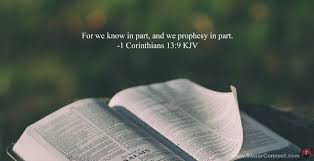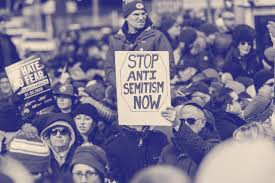
Many times, human rights issues have come into conflict with some religious practices. On other occasions, proponents of human rights have also clashed with statutory laws as embodied in various state apparatus. In each case, the entities at play would want to seek a justification for their respective stand. Human rights fighters would argue that individual rights are paramount above all else.
sundayword BY PROSPER TINGINI
Religious gurus would want to put God and His commands or instructions to mankind ahead of everything. Culture and its traditions are also a religion in itself, even outside of God, and as such those who hold their culture in high esteem would want to protect it at any cost. Every state has its own constitution meant to protect its citizens and to maintain law and order. An absence of law and order would create chaos, confusion and a disintegration of any society. It is a law of natural survival. All the different valued opinions have to co-exist in order to bring peace otherwise people would always be at war with each other. It is impossible to satisfy everybody’s standpoint at once and at all times.
On human rights, the first important thing to do is try to define its meaning and its boundaries as well. We often hear of people talking about the rights to things like life, water, education, free speech and even things like abortion, among many others. Inevitably, some of these rights at times would then infringe on a state’s constitution, religion or traditional beliefs. Human rights have to be applied within the confines of the laws of the country. A human right should be an entitlement in life, something which everyone must have without fail or discrimination. No human being can survive without food, so food should be placed at the top of the human rights chain. Unfortunately, it is biblical that every human has to toil and sweat to procure his own food. It is God’s punishment “for eating the forbidden fruit” (Genesis 3: 17-19). However, should anyone fail to have food to eat, even God himself instructs everyone to assist by giving support and providing food to those in need. He even enacted a number of laws to ensure that this most important human right is upheld (read Leviticus 9: 9-10; Deuteronomy 24: 19-22 and many more). Ultimately, it is the state’s responsibility to ensure all its citizens do not die of hunger. Food is a human right. It should be enshrined in any country’s constitution. It is a genuine human right of utmost importance.
No human being can also survive without the air we breathe. Everyone must breath. Absence of the right composition of clean air affects humans. Luckily, the Lord our God provided us with free unpolluted air for everyone, including animals and plants, to breathe. This divine provision should be kept clean at all times, therefore unpolluted air should be considered as a human right next to food. Any contamination to the air we breathe could bring death or sickness. A clean atmospheric environment at all times is an entitlement and should be enshrined in a national constitution plus encompassed in global agreements. This is a basic human right that cuts across religions, traditions etc. Environmental human rights proponents are fighting for a genuine human right too.
In addition to food and clean air, all living things require water to survive. Water is an integral part of life and we cannot talk of life without water. Every human being has to have access to water. Again God created our planet and provided it with plenty of free water found in the oceans, seas and rivers. He also ensured there was a constant supply of fresh water through periodic rainfalls. It is therefore everyone’s duty to keep that water clean. Contaminated water also brings death or sickness to people. It is thus everyone’s right to have access to uncontaminated water. This is also a genuine human right. It is the responsibility of the state to ensure the provision of clean water to all its citizens. Food, clean air and water are the major basic human rights to life. Other human rights which some people cry for are of a supplementary nature, to serve other purposes which are not of extreme importance.
Some people would just wake up any one day and decide by themselves that they would want to make certain issues a part of human rights. While some of those particular issues would be beneficial and attract reasonable support from a wide group of people, others are meant only to serve a few individuals. We are looking at people who advocate for the rights to abortion, or protection of criminals and murderers. No one is above the law and those who break the law should face the law and be judged accordingly. While some laws are enacted by the state with the participation of its citizens, there are some religious practices which are a law in themselves to their respective religious followers. Most of the people who believe in the existence of the Almighty God would also want to abide by His laws. Human rights proponents with no respect for religion have on many occasions fought against some of God’s own directives as enshrined in certain religious principles.
Religion is an important component of human living. A society’s cultures and traditions are also part of its religion if the beliefs are universally accepted within that environment. A custom is a religion in itself. Most cultures or customs are moulded around beliefs in a “god” who is considered superior to humans and who is in control of their lives. This “god” is an authority in their lives and he tells people what to do. It is fortunate that the majority of humans on planet Earth now subscribe to the notion of a One God, the Almighty. This promotes cohesion in people’s religious beliefs at some point, which helps to bring relative peace across the religious divides. This also helps to keep societies together if they share common beliefs. An absence of both culture and religion results in moral decay in any given society.
- Chamisa under fire over US$120K donation
- Mavhunga puts DeMbare into Chibuku quarterfinals
- Pension funds bet on Cabora Bassa oilfields
- Councils defy govt fire tender directive
Keep Reading
Atheists believe there is no God. To them, there is no divine law. It’s not surprising that a good number of these people believe in the rights of individuals ahead of any religious beliefs and sometimes even ahead of laws of the state which are normally drawn from the various sections of its population. If such people come together to speak against or in support of certain practices, they are then bound to clash with various established organs of society.
On the other hand, we also have people with a religious background who could interpret the scriptures differently from others. Such people would at times also want to advance their own views in the name of some kind of human rights. Apart from their support for abortionists, criminals and murderers, they would also want to cut into people’s traditions like circumcision, lobola, and respect for elders. They want freedom to criticise established authority and many established practices which they then assume are a violation to individual freedoms.
Recognition of authority is crucial. A state would argue that state authority is of paramount importance. Religious leaders would claim that God is the supreme authority. Human rights promotes an individual’s rights, above all else, but what is important is that the three should co-exist to maintain peace.
Prosper Tingini compiled a book titled God’s Constitution for Mankind — The Laws and Commandments. His contact details are 0771 260 195 or email: [email protected].











